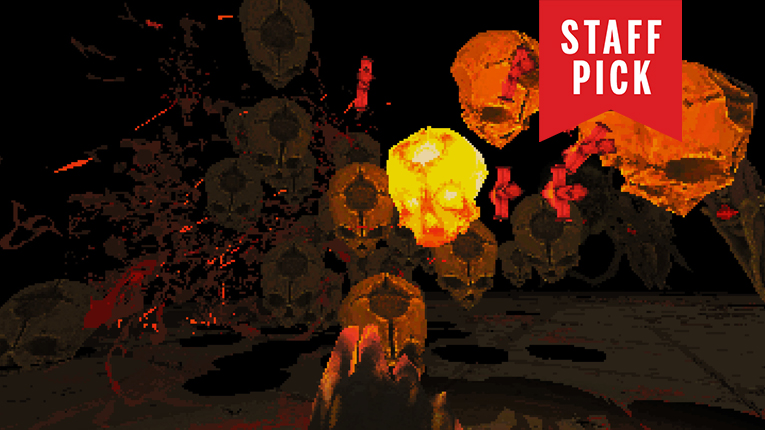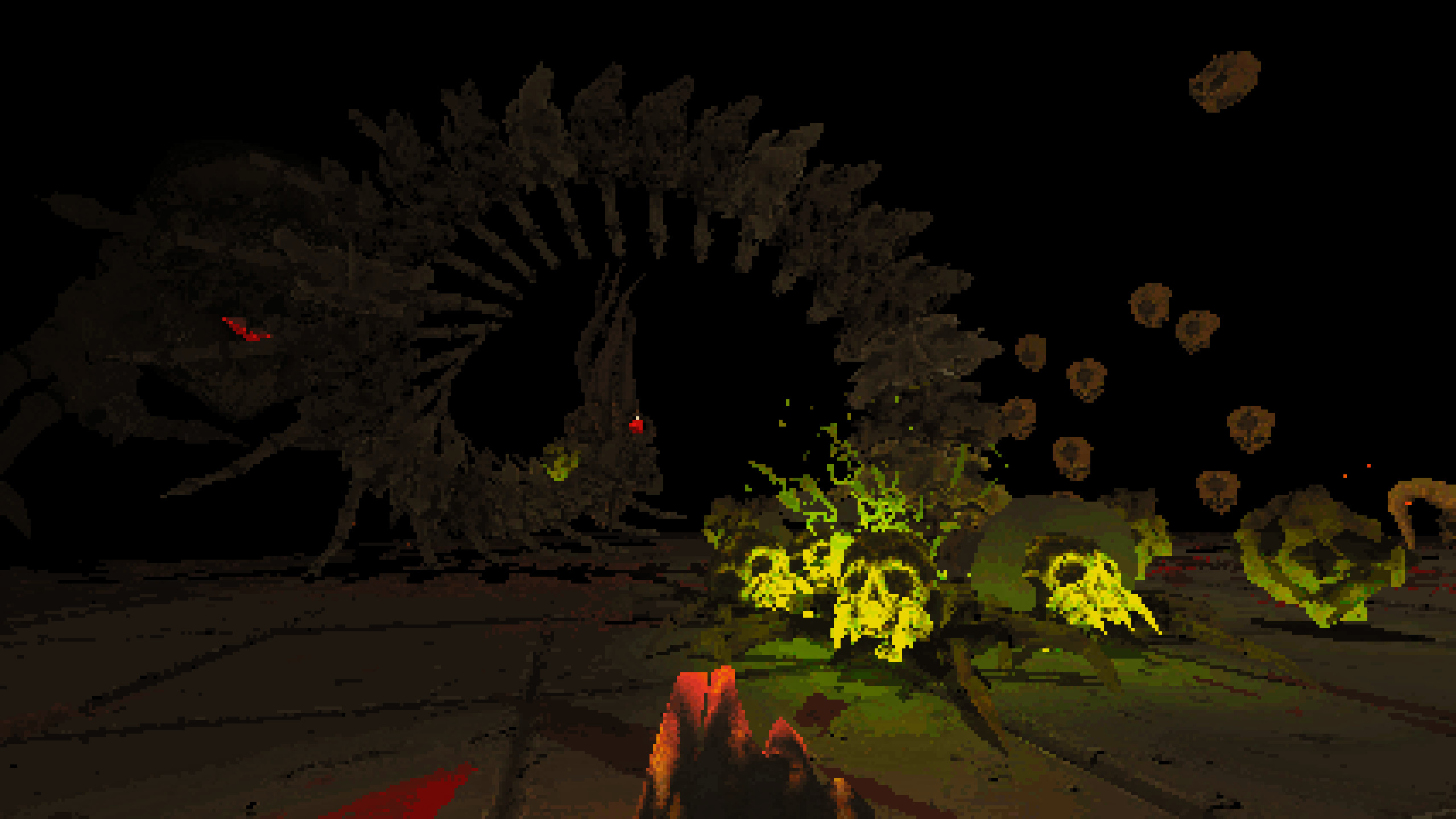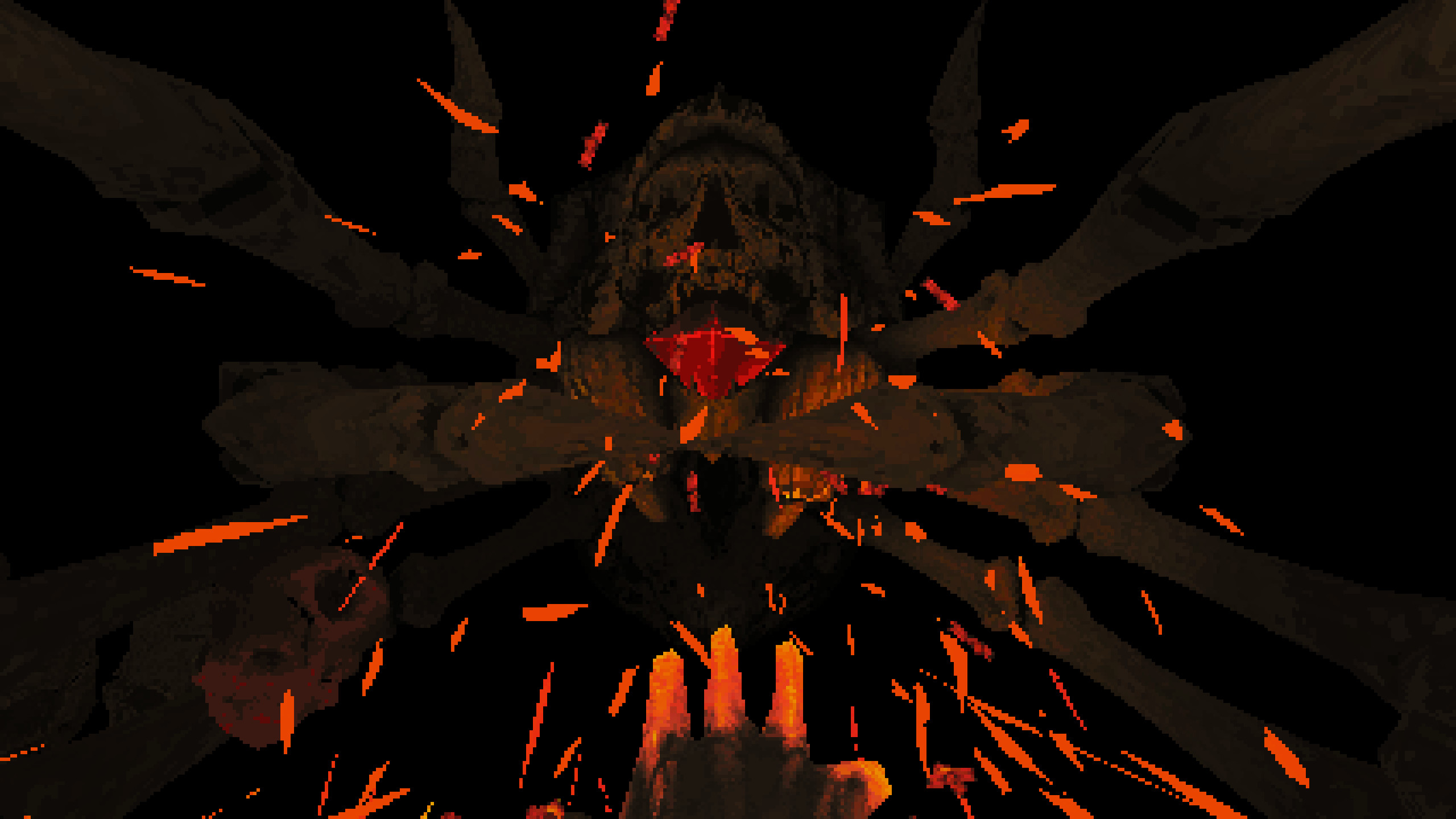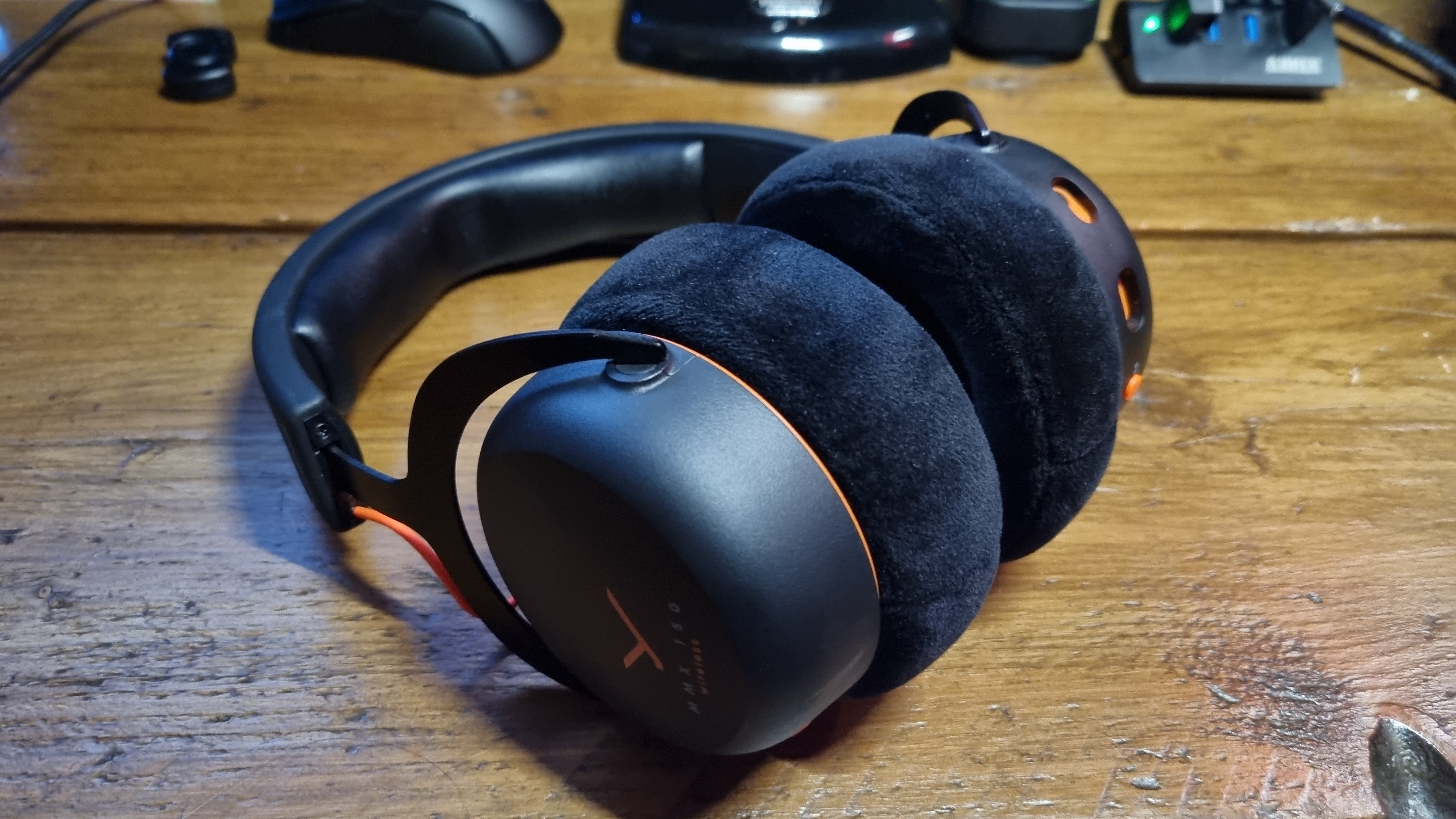Devil Daggers is the year's best game about shooting infinite skulls forever
A purification of Quake so potent we've only been able to play 180 seconds at a time.
Keep up to date with the most important stories and the best deals, as picked by the PC Gamer team.
You are now subscribed
Your newsletter sign-up was successful
Want to add more newsletters?

Every Friday
GamesRadar+
Your weekly update on everything you could ever want to know about the games you already love, games we know you're going to love in the near future, and tales from the communities that surround them.

Every Thursday
GTA 6 O'clock
Our special GTA 6 newsletter, with breaking news, insider info, and rumor analysis from the award-winning GTA 6 O'clock experts.

Every Friday
Knowledge
From the creators of Edge: A weekly videogame industry newsletter with analysis from expert writers, guidance from professionals, and insight into what's on the horizon.

Every Thursday
The Setup
Hardware nerds unite, sign up to our free tech newsletter for a weekly digest of the hottest new tech, the latest gadgets on the test bench, and much more.

Every Wednesday
Switch 2 Spotlight
Sign up to our new Switch 2 newsletter, where we bring you the latest talking points on Nintendo's new console each week, bring you up to date on the news, and recommend what games to play.

Every Saturday
The Watchlist
Subscribe for a weekly digest of the movie and TV news that matters, direct to your inbox. From first-look trailers, interviews, reviews and explainers, we've got you covered.

Once a month
SFX
Get sneak previews, exclusive competitions and details of special events each month!

Along with our group-selected 2016 Game of the Year Awards, each member of the PC Gamer staff has independently chosen one game to commend as a personal favorite of the year. We'll continue to post new Staff Picks throughout the rest of 2016.
Look, I feel bad about this. I thought Devil Daggers came out late last year—November, maybe—and not in February. Had I remembered that it came out in 2016, I'd have argued strongly for it in almost all of our Game of the Year categories, including Best Racing Game, Best Overwatch, and Darkest Dungeon.
In my defence the period from December to February is dark, oppressive, life-sapping and haunted by tentacle-skull-spider-monsters and so is Devil Daggers. One run, one hour, one day tends to blur into every other run, hour, and day. Time both passes and doesn't pass, when you're down there in Skull Hell, but time is paramount: all that matters is surviving just that little bit longer. You internalise the patterns and learn to cope. You start firing before the spider-creature appears, because it got you last time but it won't get you again.
Devil Daggers is a very good game.
It's Pure Quake, basically. It is to Quake what the blue meth in Breaking Bad is to regular meth, except it's real. You spawn on a circular platform in Skull Hell surrounded by darkness. Laughing skulls spew from skull pillars and you fell them by spraying hot daggers from your extended palm. Distant chittering presages the arrival of the skull spider, which you slay by spraying its chest-skull.
This game gets under your skin and you don't forget. It's like learning to ride a bike. In Skull Hell.
More skulls follow, and more skull pillars, and then the skull worm, and then several skull spiders at once, and then... I don't know what happens after that. That takes us up to about 180 seconds, which is as long as Devil Daggers has ever lasted for me in hours upon hours of play.
I'm also not sure if they're really called skull pillars or skull spiders or skull worms: I've never had to write their names down before. Instead I've picked up an instinctive knowledge of that one arena and its denizens, what they sound like, where they come from, the specific combinations of strafe and jump and shoot that kills them before they kill me. This game gets under your skin and you don't forget. It's like learning to ride a bike. In Skull Hell.
(Case in point: I just loaded the game for the first time in a couple of months and clocked 153 seconds on my first run. It's like no time has passed at all. It might as well still be February. Shit.)
Keep up to date with the most important stories and the best deals, as picked by the PC Gamer team.
Devil Daggers feels timeless, which is the best excuse I've got for forgetting that it came out this year.
It is flawlessly designed, in that it achieves all of its ambitions. It looks perfect—like running an old-school FPS on a too-large, busted monitor—and sounds better. You can play it by ear. The initial panic of survival gives way to mastery as you learn to pause between shots, rocket-jump, hop, shotgun, collect shards, etc.
It's the successor to similarly punishing time trial games like Super Hexagon, but a little stranger, a little subtler, a little less brutally digital in the way it doles out failure. You can enjoy it for its feel even if you're terrible at it, and I've felt strangely compelled to avoid videos of five-minute-plus runs because one day I want to see those things for myself. I want to earn every inch of territory I've claimed in Skull Hell.
Devil Daggers feels timeless, which is the best excuse I've got for forgetting that it came out this year. It's one of those games that is always a good idea, that should always have a place on your hard drive. It costs $5, for heaven's sake. This is your reminder, and mine, that it exists. Go play Devil Daggers.
Joining in 2011, Chris made his start with PC Gamer turning beautiful trees into magazines, first as a writer and later as deputy editor. Once PCG's reluctant MMO champion , his discovery of Dota 2 in 2012 led him to much darker, stranger places. In 2015, Chris became the editor of PC Gamer Pro, overseeing our online coverage of competitive gaming and esports. He left in 2017, and can be now found making games and recording the Crate & Crowbar podcast.





